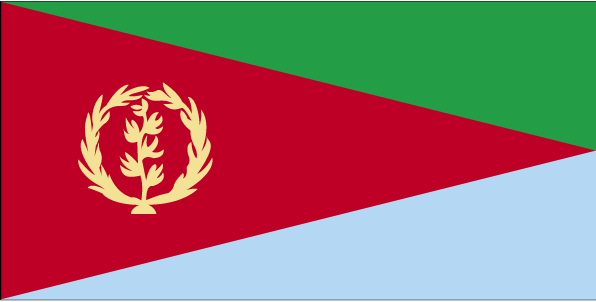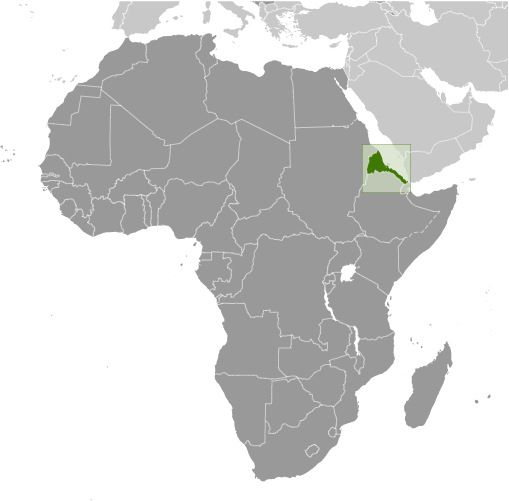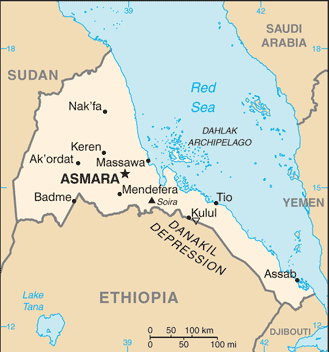The UN awarded Eritrea to Ethiopia in 1952 as part of a federation. Ethiopia's annexation of Eritrea as a province 10 years later sparked a 30-year struggle for independence that ended in 1991 with Eritrean rebels defeating governmental forces; independence was overwhelmingly approved in a 1993 referendum. A two-and-a-half-year border war with Ethiopia that erupted in 1998 ended under UN auspices in December 2000. Eritrea hosted a UN peacekeeping operation that monitored a 25 km-wide Temporary Security Zone (TSZ) on the border with Ethiopia. Eritrea's denial of fuel to the mission caused the UN to withdraw the mission and terminate its mandate 31 July 2008. An international commission, organized to resolve the border dispute, posted its findings in 2002. However, both parties have been unable to reach agreement on implementing the decision. On 30 November 2007, the Eritrea-Ethiopia Boundary Commission remotely demarcated the border by coordinates and dissolved itself, leaving Ethiopia still occupying several tracts of disputed territory, including the town of Badme. Eritrea accepted the EEBC's "virtual demarcation" decision and called on Ethiopia to remove its troops from the TSZ that it states is Eritrean territory. Ethiopia has not accepted the virtual demarcation decision.
Population
5,792,984 (July 2010 est.)
Country comparison to the world:108
Nationality
Noun:Eritrean(s)
Adjective:Eritrean
Ethnic groups
Tigrinya 50%, Tigre and Kunama 40%, Afar 4%, Saho (Red Sea coast dwellers) 3%, other 3%
Religions
Muslim, Coptic Christian, Roman Catholic, Protestant
Languages
Afar, Arabic, Tigre and Kunama, Tigrinya, other Cushitic languages
Country Name
Conventional long form:State of Eritrea
Conventional short form:Eritrea
Local long form:Hagere Ertra
Local short form:Ertra
Former:Eritrea Autonomous Region in Ethiopia
Government Type
transitional government
note: following a successful referendum on independence for the Autonomous Region of Eritrea on 23-25 April 1993, a National Assembly, composed entirely of the People's Front for Democracy and Justice or PFDJ, was established as a transitional legislature; a Constitutional Commission was also established to draft a constitution; ISAIAS Afworki was elected president by the transitional legislature; the constitution, ratified in May 1997, did not enter into effect, pending parliamentary and presidential elections; parliamentary elections were scheduled in December 2001 but were postponed indefinitely; currently the sole legal party is the People's Front for Democracy and Justice (PFDJ)<
Capital
Name:Asmara (Asmera)
Geographic coordinates:15 20 N, 38 56 E
Time difference:UTC+3 (8 hours ahead of Washington, DC during Standard Time)
Administrative divisions
6 regions (zobatat, singular - zoba); Anseba, Debub (South), Debubawi K'eyih Bahri (Southern Red Sea), Gash Barka, Ma'akel (Central), Semenawi Keyih Bahri (Northern Red Sea)
Independence
24 May 1993 (from Ethiopia)
National Holiday
Independence Day, 24 May (1993)
Constitution
adopted on 23 May 1997, but has not yet been fully implemented
Legal system
primary basis is the Ethiopian legal code of 1957 with revisions; new civil, commercial, and penal codes have not yet been promulgated; government also issues unilateral proclamations setting laws and policies; also relies on customary and post-independence-enacted laws and, for civil cases involving Muslims, Islamic law; does not accept compulsory ICJ jurisdiction
Suffrage
18 years of age; universal
Executive branch
Chief of state:President ISAIAS Afworki (since 8 June 1993); note - the president is both the chief of state and head of government and is head of the State Council and National Assembly
Head of government: President ISAIAS Afworki (since 8 June 1993)
Cabinet:State Council the collective executive authority; members appointed by the president
(For more information visit the World Leaders website)
Elections: president elected by the National Assembly for a five-year term (eligible for a second term); the most recent and only election held on 8 June 1993 (next election date uncertain as the National Assembly did not hold a presidential election in December 2001 as anticipated)
Election results: ISAIAS Afworki elected president; percent of National Assembly vote - ISAIAS Afworki 95%, other 5%
Legislative branch
unicameral National Assembly (150 seats; members elected by direct popular vote to serve five-year terms)
Elections: in May 1997, following the adoption of the new constitution, 75 members of the PFDJ Central Committee (the old Central Committee of the EPLF), 60 members of the 527-member Constituent Assembly, which had been established in 1997 to discuss and ratify the new constitution, and 15 representatives of Eritreans living abroad were formed into a Transitional National Assembly to serve as the country's legislative body until countrywide elections to a National Assembly were held; although only 75 of 150 members of the Transitional National Assembly were elected, the constitution stipulates that once past the transition stage, all members of the National Assembly will be elected by secret ballot of all eligible voters; National Assembly elections scheduled for December 2001 were postponed indefinitely
Judicial branch
High Court - regional, subregional, and village courts; also have military and special courts
Political Parties and Leaders
People's Front for Democracy and Justice or PFDJ [ISAIAS Afworki] (the only party recognized by the government); note - a National Assembly committee drafted a law on political parties in January 2001, but the full National Assembly has yet to debate or vote on it
Political pressure groups and leaders
Eritrean Democratic Party (EDP) [HAGOS, Mesfin]; Eritrean Islamic Jihad or EIJ (includes Eritrean Islamic Jihad Movement or EIJM also known as the Abu Sihel Movement); Eritrean Islamic Salvation or EIS (also known as the Arafa Movement); Eritrean Liberation Front or ELF [ABDULLAH Muhammed]; Eritrean National Alliance or ENA (a coalition including EIJ, EIS, ELF, and a number of ELF factions) [HERUY Tedla Biru]; Eritrean Public Forum or EPF [ARADOM Iyob]
International organization participation
ACP, AfDB, AU, COMESA, FAO, G-77, IAEA, IBRD, ICAO, ICCt (signatory), IDA, IFAD, IFC, IFRCS (observer), ILO, IMF, IMO, Interpol, IOC, ISO (subscriber), ITU, ITUC, LAS (observer), MIGA, NAM, OPCW, PCA, UN, UNCTAD, UNESCO, UNIDO, UNWTO, UPU, WCO, WFTU, WHO, WIPO, WMO
Diplomatic representation in the US
Chief of mission:Ambassador GHIRMAI Ghebremariam
Chancery:1708 New Hampshire Avenue NW, Washington, DC 20009
Telephone:[1] (202) 319-1991
FAX:[1] (202) 319-1304
Consulate(s) general:Oakland (California)
Diplomatic representation from the US
Chief of mission:Ambassador Ronald MCMULLEN
Embassy:179 Ala Street, Asmara
Mailing address:P. O. Box 211, Asmara
Telephone:[291] (1) 120004
FAX:[291] (1) 127584
Flag description
red isosceles triangle (based on the hoist side) dividing the flag into two right triangles; the upper triangle is green, the lower one is blue; a gold wreath encircling a gold olive branch is centered on the hoist side of the red triangle










